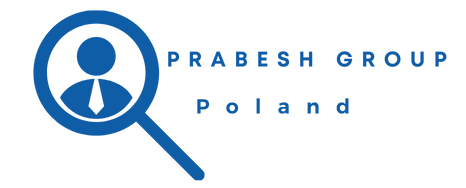
Mental Health Assessment Questionnaires For Research
Add a review FollowOverview
-
Founded Date 6 February 1971
-
Sectors Automotive Jobs
-
Posted Jobs 0
-
Viewed 11
Company Description
The 9 Things Your Parents Taught You About Mental Health Assessment For Ocd
Understanding Mental Health Assessment for OCD: A Comprehensive Guide
Obsessive-Compulsive Disorder (OCD) is a complex mental health condition identified by persistent, intrusive ideas (fascinations) and recurring behaviors (obsessions) that an individual feels forced to carry out. While OCD differs in severity and discussion among people, comprehensive mental health assessments are vital for accurate diagnosis and efficient treatment.
This post looks into mental health assessment For OCD (www.gerd.top), exploring its significance, methodologies, common assessment tools, and the regularly asked questions that arise in this context.
The Importance of Mental Health Assessment for OCD
Accurate assessment plays a crucial role in the efficient management of OCD. A proper evaluation makes sure:
-
Correct Diagnosis: OCD can often be puzzled with other mental health disorders such as anxiety disorders, depression, or eating disorders. An accurate assessment can assist distinguish OCD from these conditions.
-
Tailored Treatment Plans: Understanding the particular fascinations and compulsions dealt with by an individual enables mental health experts to develop personalized treatment strategies that attend to the unique requirements of the client.
-
Tracking Progress: Assessments aid in monitoring improvements or obstacles in symptoms gradually, providing valuable feedback for treatment changes.
-
Awareness and Education: Assessments typically include education about OCD, which can empower people and households by increasing their understanding of the condition.
Approaches for Mental Health Assessment
Mental health assessments for OCD generally involve a mix of clinical interviews, self-report questionnaires, and observational strategies. Below is a breakdown of typically utilized methodologies:
Clinical Interviews
These are structured or semi-structured discussions in between a clinician and the client. Key parts include:
- History of Symptoms: Inquiring about the start, duration, and intensity of fascinations and obsessions.
- Functional Impairment: Evaluating how OCD signs affect everyday functioning, relationships, and total quality of life.
- Family History: Understanding any hereditary patterns of OCD or related disorders.
Self-Report Questionnaires
Several validated questionnaires can be utilized during the assessment process. Some of the extensively recognized tools consist of:
- Yale-Brown Obsessive Compulsive Scale (Y-BOCS): A widely utilized instrument particularly designed to measure the seriousness of OCD signs.
- Obsessive-Compulsive Inventory (OCI): This self-report scale evaluates a series of OCD signs and behaviors.
- Beck Anxiety Inventory (BAI): A tool that helps assess the level of anxiety, which often co-occurs with OCD.
Observational Assessments
These involve observing behaviors associated with fixations and compulsions. Mental health specialists might look for:
- The frequency and period of compulsions.
- The context in which obsessions happen.
- Behavioral actions to triggers.
Common Assessment Tools Used in OCD Evaluation
| Assessment Tool | Description | Notes |
|---|---|---|
| Yale-Brown Obsessive Compulsive Scale (Y-BOCS) | Measures the intensity of obsessions and obsessions | Clinician-administered or self-report |
| Obsessive-Compulsive Inventory (OCI) | Assesses symptoms across various OCD domains | Self-report |
| Beck Anxiety Inventory (BAI) | Evaluates anxiety levels, typical in people with OCD | Self-report |
| Mini International Neuropsychiatric Interview (MINI) | A structured diagnostic interview evaluating various mental disorders | Clinician-administered |
| Dimensional Obsessive-Compulsive Scale (DOCS) | Assesses OCD symptoms throughout various measurements | Clinician-administered or self-report |
Treatment Approaches Following Assessment
When an accurate assessment is completed, several treatment alternatives may be considered based upon the individual’s needs. These can consist of:
-
Cognitive Behavioral Therapy (CBT): This evidence-based therapy focuses on altering unfavorable thought patterns and behaviors. Exposure and Response Prevention (ERP) is a particular kind of CBT that is especially efficient for OCD.
-
Medication: Selective Serotonin Reuptake Inhibitors (SSRIs) and other medications can help ease OCD symptoms and are often utilized in combination with therapy.
-
Support system: Providing emotional support from peers who understand the challenges of OCD can foster a sense of neighborhood and shared experience.
-
Mindfulness and Stress Management: Techniques such as mindfulness-based stress reduction (MBSR) can help individuals handle anxiety and lower compulsive behaviors.
Frequently Asked Questions (FAQs)
1. What are the signs of OCD?
OCD signs differ however usually include unwanted thoughts (obsessions) and repetitive habits (obsessions). Typical fascinations include fears of contamination and harm, while obsessions might involve extreme cleansing or examining rituals.
2. How is OCD diagnosed?
OCD is identified based upon clinical interviews, self-report questionnaires, and symptom evaluations. The DSM-5 provides criteria that should be met for a valid diagnosis.
3. Can OCD be treated?
Yes, OCD is treatable through numerous techniques, including cognitive-behavioral therapy, medication, and support groups. Early intervention frequently causes much better outcomes.
4. The length of time does treatment for OCD normally take?
The duration of treatment can vary extensively depending upon the intensity of symptoms and the individual’s action to treatment. Typically, efficient treatment can take a number of months to years.
5. Is OCD curable?
While there is currently no definitive remedy for OCD, signs can be successfully managed, permitting individuals to lead fulfilling lives. Ongoing treatment and support can help preserve sign relief.
Mental health assessments for OCD are vital in comprehending the complexities of this difficult disorder. Through cautious evaluation, reliable treatment strategies can be devised to enhance the quality of life for those affected by OCD. A mix of treatments and support can empower people to manage their signs and recover their lives from the grips of extreme fixation and obsession. Eventually, a proactive approach to assessment and treatment can result in significant improvements in mental health outcomes for those dealing with OCD.




